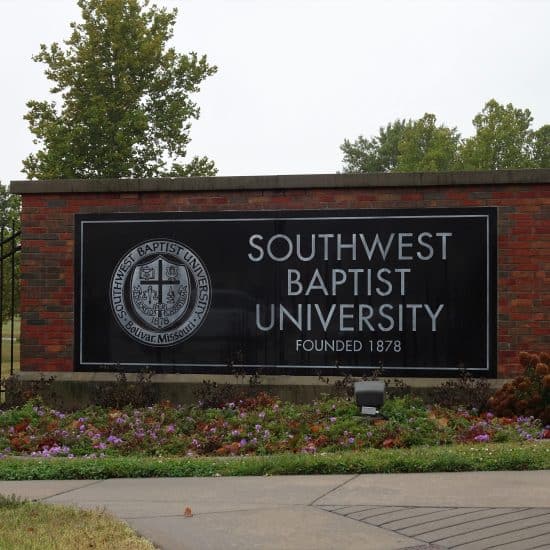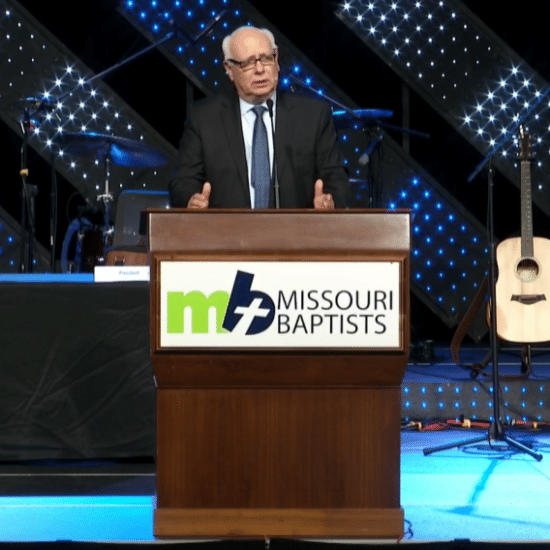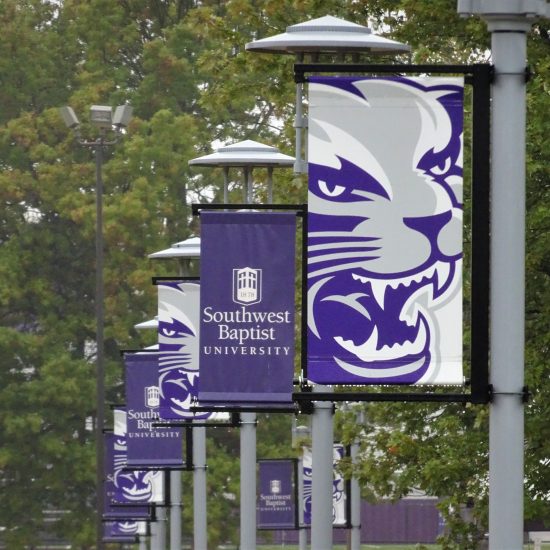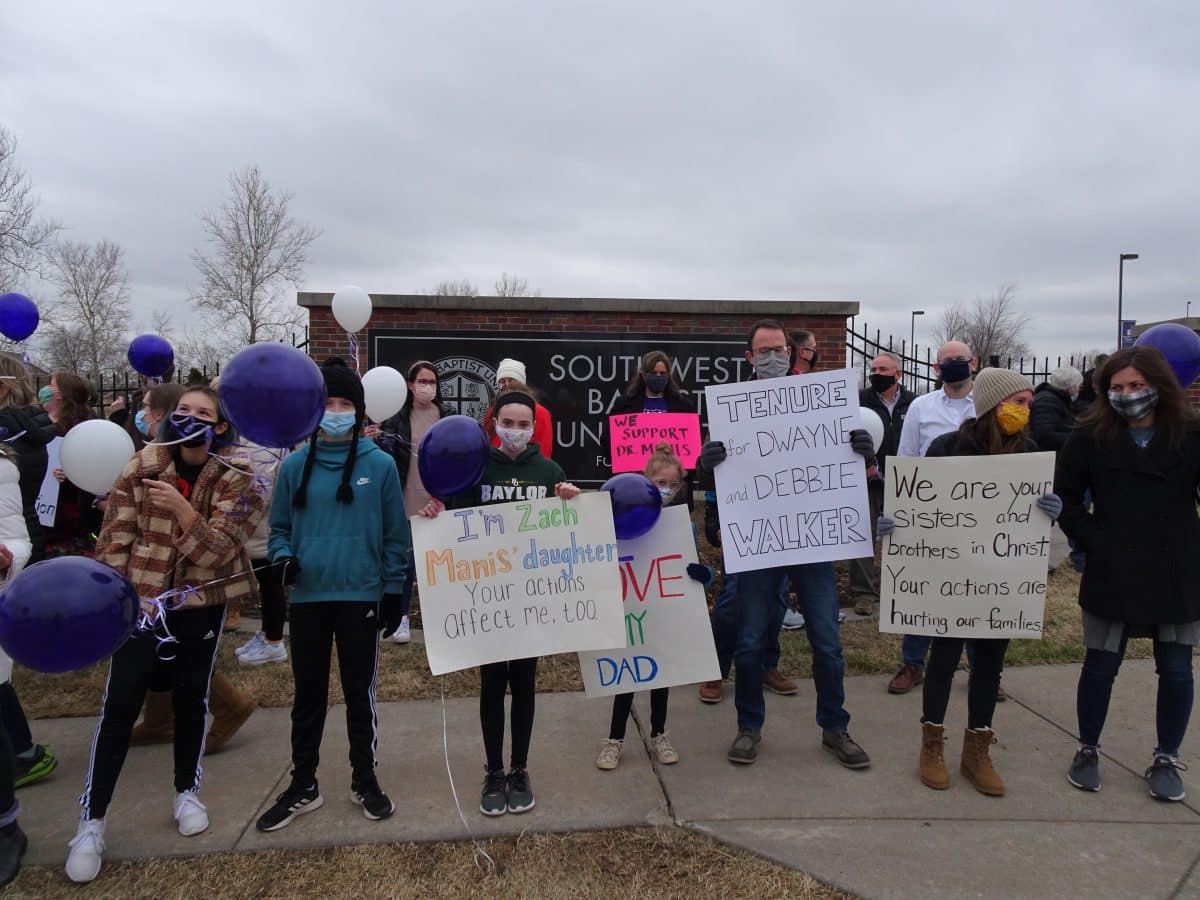
Amid concerns at Southwest Baptist University after the Board of Trustees denied tenure or promotion to multiple professors, leaders of the school in Bolivar, Missouri, insist they will not eliminate or change the Division of Behavioral Sciences. Although SBU’s statement Thursday (March 11) did not mention why school leaders felt the need to make this declaration, it appeared to be in response to Word&Way’s reporting about the targeting of professors in the behavioral sciences.
“As advocates of healthy, organizational communication, we want to specifically express our support for the Division of Behavioral Sciences and the vital degree programs housed within this division,” said Eddie Bumpers, chair of SBU’s Board of Trustees. “From the Board’s perspective, a wide breadth of teaching approaches is necessary in order to honor the University’s principal commitment to successfully equip all SBU students to be servant-leaders in a global society. Moreover, Southwest Baptist University is not eliminating or changing the Division of Behavioral Sciences.”
“Graduates of these programs have a proven track record of providing a myriad of essential services in our communities, churches, and Missouri Baptist Convention entities,” added Bumpers, who is senior pastor at Crossway Baptist Church in Springfield, Missouri. “Professionals in social work, criminal justice, psychology, and sociology are vital for every segment of our society. We are grateful for faculty at SBU equipping Christians to fill these roles of civil service.”
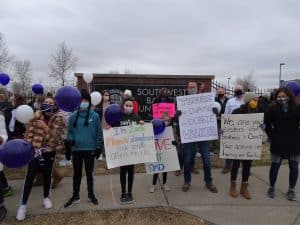
Part of a Feb. 26 rally at Southwest Baptist University to support professors targeted for dismissal by SBU trustees. (Brian Kaylor/Word&Way)
The expressed support for the programs comes even as the Board denied tenure and terminated the director of the school’s Bachelor of Social Work program, Dwayne Walker. A graduate of SBU, Walker is a licensed clinical social worker with a Master of Social Work and years of social work experience outside of academia.
Social work has sometimes come under fire in Southern Baptist life, such as when Al Mohler as president of Southern Baptist Theological Seminary in Louisville, Kentucky, ended the social work program at that school. Mohler, who is now running for Southern Baptist Convention president, declared at the time, “The culture of social work and the culture of theological education are not congruent.”
Neither Bumpers nor SBU’s administration responded to Word&Way requests for comment asking if they agreed or not with Mohler’s assessment about social work and theological education.
SBU Interim President Brad Johnson added his support for the Behavioral Sciences in the SBU statement. Johnson is leading the school after the resignation of President Eric Turner amid the two-year controversy at the school as some Missouri Baptist Convention leaders sought more control.
“There is a mental health crisis in our world today,” Johnson said in the statement. “More than ever, our world needs SBU graduates serving as the hands and feet of Christ in Behavioral Sciences. Our students are garnering the extensive training needed to assist with scores of mental health concerns while also shining the light that draws people to the love of Christ.”
Although Johnson noted a mental health crisis, SBU refused tenure and terminated the only full-time therapist on staff. Debbie Walker, an SBU alum, is a licensed psychologist with a doctorate in clinical psychology and two decades of experience in private practice.
In addition to ending employment for the Walkers and denying promotion to another faculty member, SBU is also ending its philosophy program and eliminating the position of its tenured philosophy professor. And several other professors in religion and other departments are leaving over concerns about the school.
Legal Changes
In addition to the SBU statement, Bumpers also spoke recently with the MBC’s publication to defend the recent changes the MBC pushed to the school’s governing documents. Those documents have not yet gone into effect since multiple individuals have petitioned the Circuit Court of Polk County to intervene in the process.
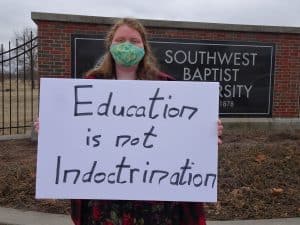
Part of a Feb. 26 rally at Southwest Baptist University to support professors targeted for dismissal by SBU trustees. (Brian Kaylor/Word&Way)
Bumpers insisted that the school requiring professors to affirm several theological statements is not indoctrination.
“A confessional approach to education is not ‘indoctrination,’” he said. “True education is to bring all theories to bear under the authority of the truth giver himself and his revealed word.”
Addressing the ongoing accreditation inquiry sparked by the new governing documents, Bumpers attacked unnamed individuals. The inquiry started after a complaint filed by Russell Jackson, an SBU alum. After hearing from SBU, the Higher Learning Commission, SBU’s accrediting body, decided to continue its investigation. The HLC scheduled a focused visit for May and changed SBU’s accreditation pathway.
“We believe that the HLC will agree that the actions of the SBU board over the last few years have only strengthened her identity and have not violated any policies,” Bumpers said.
“We know that some individuals have sought to stir controversy and division within the life of SBU by false accusations and attempts to threaten our accreditation,” he added. “We are not swayed by those who seek to attack and divide, rather we pray for their hearts to change.”
At the heart of the complaint is the change in legal relationship between SBU and the MBC. Bumpers, however, insisted nothing actually changed.
“SBU’s corporate structure has not changed; it is still organized as a benevolent organization under the same statute it has always been organized,” he told the MBC’s publication. “The addition of the sole member language is simply updated language that represents the relationship that has always existed in SBU’s structure.”
Although Bumper said this relationship “always” existed at SBU, the school actually started independently in 1878. The MBC did not even elect trustees until 1922. And in 1983, the MBC told a court that the convention does not own or operate SBU. The new governing documents instead name the MBC as sole legal member and declare SBU’s trustees have a fiduciary responsibility to the MBC rather than solely to SBU.


